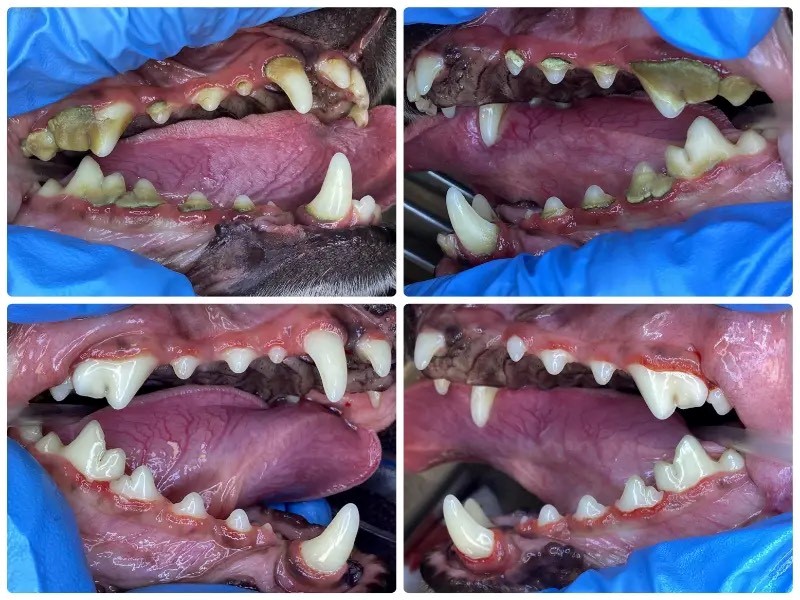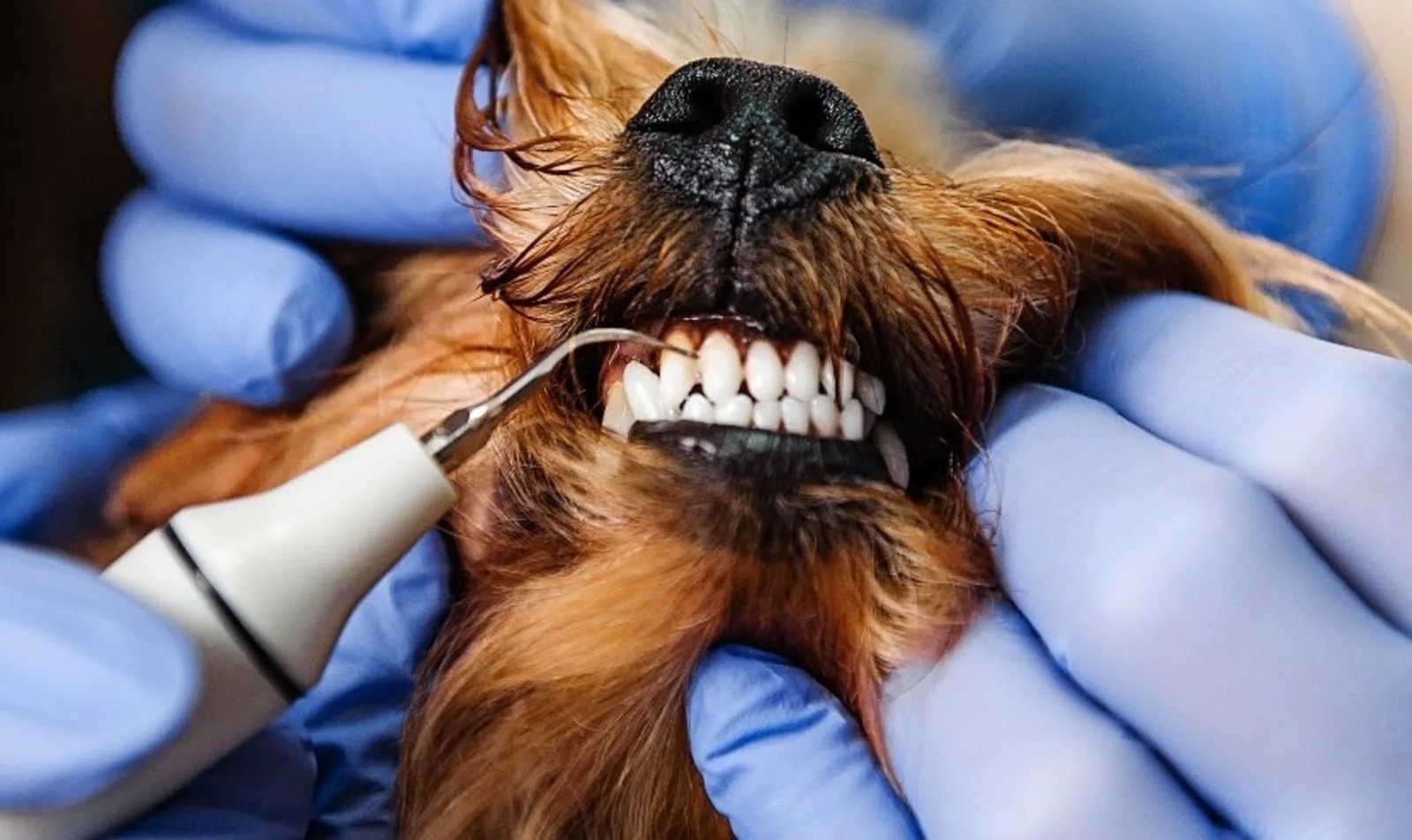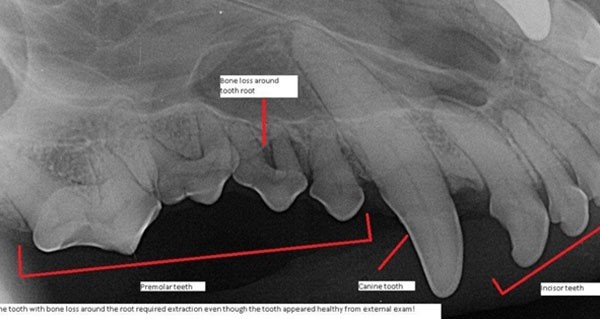Dentistry
Dentistry is a rapidly growing area of veterinary science. We have seen a greater awareness over the last 25 years of its importance to the overall health of the animals we treat. Just like humans, our pets are vulnerable to gum disease and problems with their teeth. Alarmingly, 80% of dogs and 70% of cats suffer from some form of dental disease by the age of three.
Pets’ teeth need looking after too! The health of their teeth and gum’s has a significant impact on their overall quality of life. Imagine how your mouth would feel, and smell, if you never brushed your teeth. Imagine having a really bad toothache and not being able to tell anyone about it!
Dental disease begins with a build up of bacteria in your pet’s mouth. Bacteria, combined with saliva and food debris, can cause plaque to accumulate on the tooth. As calcium salts are deposited, plaque turns to tartar (brown or yellow material starting near the gum line of the tooth).
Bacteria in plaque and tartar cause inflamed gums or periodontal disease which affects the tissues and structures supporting the teeth.
Periodontal disease can cause oral pain and tooth loss. Gingivitis is recognised as a potential source of bacteria going to the heart and kidneys.

Common signs of dental disease, in order of severity, include:
- Yellow-brown tartar around the gumline
- Inflamed, red gums
- Bad breath
- Change in eating or chewing habits (especially in cats)
- Pawing at the face or mouth
- Excessive drooling
- Pain or bleeding when you touch the gums or mouth
How can I prevent dental disease?
Long-term control and prevention of dental disease requires regular home care. The best way to begin this is to accustom your pet from an early age. Dental home care may include:

- Commercially available “teeth diet” (Hill’s T/D or Royal Canin Dental)
- Aquadent (a plaque preventative + breath freshening drinking water additive)
- Dental Thimble (finger toothbrush)
- Rawhide chews, pig ears
- Greenies
- Dentabones
- Dental Kong chew toy
- Other chew toys/treats
- Toothbrush and toothpaste
What if my pet has dental disease?
Firstly, you should have your pet’s teeth examined by one of our veterinarians on a regular basis and if necessary, follow up with a professional dental clean. Your pet needs to be anaesthetised to carry out a thorough dental examination, and to clean all teeth without distressing them. Once anaesthetised, a complete dental examination is carried out. This process involves charting all present teeth and evaluating their condition, including the degree of tartar, gingivitis (gum inflammation) and any pockets in the gums around the teeth. Our veterinarians will then remove the tartar above the gumline using a special ultrasonic scaler, just like a dentist uses for our teeth.

The teeth are then polished using a dental polisher and specialised fine-grade paste. If the dental disease is not severe, the procedure will end here. However, if certain teeth are so severely affected they cannot be saved, extractions will be necessary. In some cases, gum surgery is required to close the holes left behind when a tooth is extracted, and dissolvable stitches are used for this procedure. Once all dental work is completed, your pet may be given an antibiotic and an anti-inflammatory injection, the anaesthetic gas is turned off, and your pet is allowed to wake up. Pets are generally able to go home on the same day.
Following a professional dental clean, a plan needs to be implemented to minimise build up of tartar again, and will depend on the severity of your pet’s dental disease. This may involve regular tooth brushing, feeding raw meaty bones and/or a special diet. It is recommended that all pets be examined 6 months after dental cleaning to determine the effectiveness of your dental care routine.
If you have any questions about dental care or professional cleaning please do not hesitate to contact us.
How can I minimise ongoing dental disease?
Long-term control and prevention of dental disease requires regular home care. The best way to begin this is to acclimatise your pet from a young age. Dental home care may include:
Brushing teeth daily – just like us! This is the best form of dental hygiene. Pet toothbrushes and toothpaste are now available. Please do not use human toothpaste formulas as they are not designed to be swallowed and may be toxic to your pet.
Feed pets raw meaty bones or special dental diets. This can help reduce the accumulation of tartar.
Use dental toys, enzymatic chews, or teeth cleaning biscuits, all of which may help keep the teeth clean.
Regular and frequent attention to your pet’s teeth may avoid the need for a professional dental clean under anaesthetic, and will also improve your pet’s overall health.
